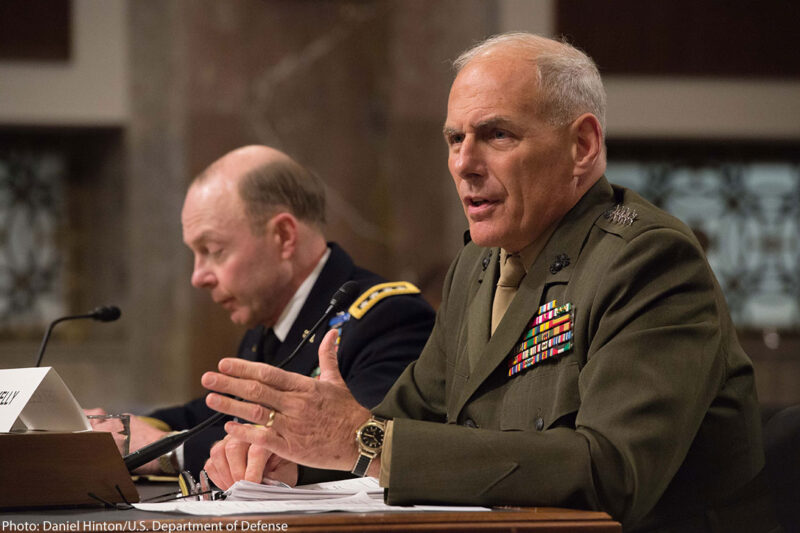The Trump White House’s Actions Recall the Most Divisive Eras of the American Past


One of the most striking, and dispiriting, aspects of the actions and pronouncements coming from the White House over the last year is the way that they seem to echo the most divisive and damaging eras of the country’s history.
Chief of Staff John Kelly’s of the Civil War as a disagreement that could have been resolved through more compromise was a revisionist attempt to trivialize the enormous injustice of slavery and white supremacy in much the same way as President Trump’s efforts to find equivalencies between Nazi demonstrators and those opposing white supremacy. Kelley’s statement harks back to efforts in the early 20th century to advance a racist agenda by recasting the Civil War. That effort was embodied in the 1915 film “Birth of a Nation,” which portrayed the Ku Klux Klan as gallant warriors in the battle to save the South, and particularly its white women, from rapacious and violent former slaves.
Then, as now, the White House played a role in promoting this narrative. President Wilson arranged for a screening of the film in the White House — the first time a movie was ever shown there — and gushed about it as “.” Like lightning, the “history” contained in the film was deeply destructive propaganda, helping to solidify a cruel racial hierarchy. Despite attempts by the NAACP and other groups to counter the movie’s effect by picketing, urging boycotts of the film, and even making two films in response, “The Birth of a Race” and “Within Our Gates, their efforts were no match for the discrimination, lynchings, and racial terror that the movie helped unleash.
The legacy of that narrative continues to this day. It lives on in the administration’s assessment of Black protesters as “Black identity extremists” and potential terrorists — a reprise of the FBI’s intrusive COINTELPRO program of decades ago — and in Trump’s denunciations of NFL players protesting racial injustice as un-American and worthy of punishment.
Sadly, this isn’t the only chapter of our history the Trump administration wants to bring back in the name of “making America great again.” The demonization of Latino and Muslim immigrants reflects not only deep-seated racism but also echoes the Chinese Exclusion Act of 1882, which closed the door to Chinese immigrants for more than 60 years. This act, done in the name of racial purity and the desire to protect American (i.e., white) workers, was just one more effort to penalize the very people who had contributed to the building of the nation. And what is the current administration’s obsession with finding voter “fraud,” of which there is , and imposing new voting restrictions but a replay of efforts to disenfranchise African-Americans that have gone on for generations?
Trump’s attempt to turn back the clock on the most vulnerable communities has to be fought in the courts, in the statehouses, and on the streets.
The administration is just as eager to return to more recent destructive policies. Attorney General Sessions is of the war on drugs, a policy that is almost universally regarded as a failure for reducing illegal drug use while having an overwhelmingly destructive impact on communities of color.
Trump’s attempt to turn back the clock on the most vulnerable communities has to be fought in the courts, in the statehouses, and on the streets. The results of last week’s elections — diversifying the ranks of elected officials by gender, race, ethnicity, religion, and sexual orientation around the nation — is a strong sign that people are waking up to the threat to liberty and equality. And they are eager to replace voices of intolerance and discrimination with ones embracing fairness, inclusion, and equality.

